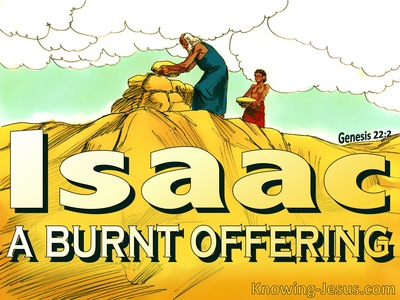◄ What Does Philemon 1:11 Mean? ►
who formerly was useless to you, but now is useful both to you and to me.
Philemon 1:11(NASB)
Verse of the Day
Tucked away at the end of Paul's main epistles, is a little letter to a dear friend and brother in Christ, Philemon. Paul's main purpose in writing was to intercede for a slave called Onesimus who had run away from his duties in Philemon's household.
Slaves who absconded from their duties could expect an icy-cold reception, severe punishment, or even worse if they returned to their master or were captured and returned home.
Paul was a prisoner in Rome, but his path must have crossed with Onesimus, for this young man had become a Christian due to his teaching, and the ageing apostle referred to him in his letter to Philemon as: "My son, whom I have begotten while in chains."
During his incarceration in a Roman prison, Paul met with Onesimus who believed the gospel of the grace of God and was wonderfully saved. However, his freedom in Christ did not release Onesimus from his ongoing obligation to Philemon and his responsibility towards his earthly master, and Paul was prompted to write to his friend and explain the situation.
Paul instructed Onesimus to return to Philemon and fulfil his responsibilities as a bond-slave. But he also entreated Philemon to be gracious to his runaway slave and to treat him as a brother in Christ rather than a wicked, runaway servant who had shirked his duty and disgraced his master.
Ironically, the name 'Onesimus' means 'profitable' but no doubt Philemon considered him to be a worthless rascal, rather than a beloved brother in Christ. And yet, Paul's petition was to welcome back into his service, the one who formerly was useless to him but now had become useful both to Philemon and to Paul.
"I appeal to you," was Paul's pleading petition to Philemon: "I appeal to you for my child Onesimus, whom I have begotten in my imprisonment, who formerly was useless to you, but now is useful both to you and to me. I have sent him back to you in person."
Paul wanted Philemon to know that Onesimus was a changed man. He had been born again by the Spirit of God and had become a new creation in Christ. He wanted his friend to know the slave who was returning to him would be a much better servant than the one who had treated him with such disrespect. He wanted Philemon to know Onesimus was returning into his service as a beloved brother, who not only proved to be profitable to Paul but would also show his worth to Philemon, himself.
No matter what our station in life, there are many lessons that each one of us can learn from this little letter to Philemon. What a joy to know that no-one is excluded from the good news of the gospel of grace, for anyone can be saved through faith in Christ. And yet, it is also important to be aware that although sin can be forgiven, there are always consequences for our wrongdoings and our responsibilities must always be addressed.
What an encouragement it is to know God works all things together for good, even the bad things that take place in our lives. And how vital to face up to our own responsibilities and to let all things be done in love, for this honours our Father in heaven.
My Prayer
Heavenly Father, as I read through the little letter from Paul to Philemon, how good it is to see the many lessons I can learn from this unfortunate incident, where a runaway slave returned to his master as a born again brother in Christ. Thank You that the things in a life that were once useless to You can be used for Your praise and glory, when that life is given over to Jesus. Help me to act responsibly in the work you have given me to do, and I pray that I may show godly grace and Christ-like love to my brothers and sisters in Christ, knowing you work all things together for good. In Jesus' name, AMEN.
Choose a Verse from Philemon 1
Philemon 1:11 Further Study
- Philemon 1:11 in the Parallel Bible
- Philemon 1:11 in the Thematic Bible
- Philemon 1:11 Cross References
- Philemon 1:11 Treasury of Scripture Knowing
- Philemon 1:11 Sermons
- Philemon 1:11 Prayers
- Philemon 1:11 Images
- Choose Chapter
-
Philemon
-
Never miss a post













